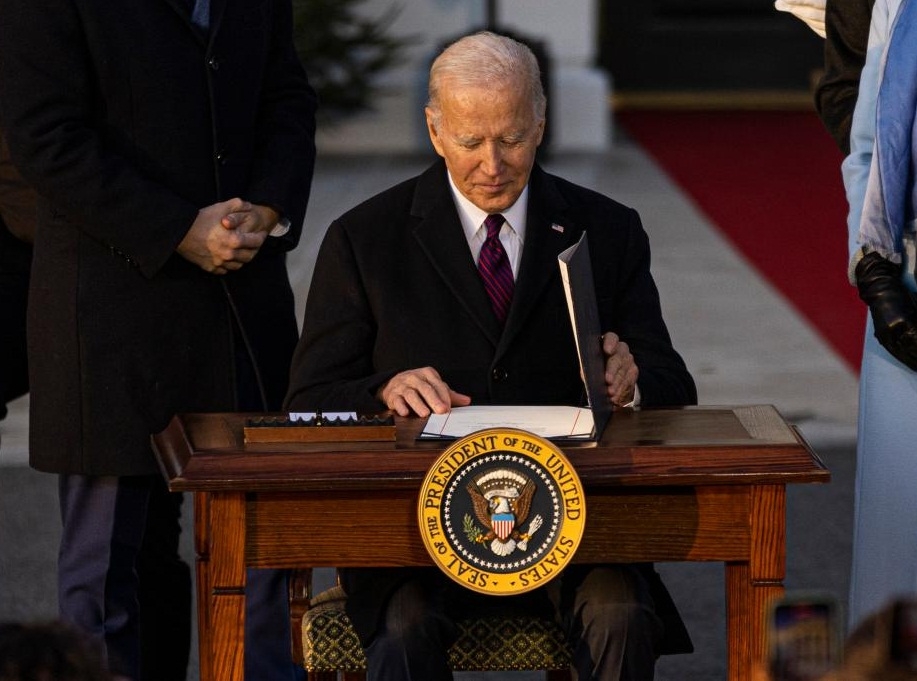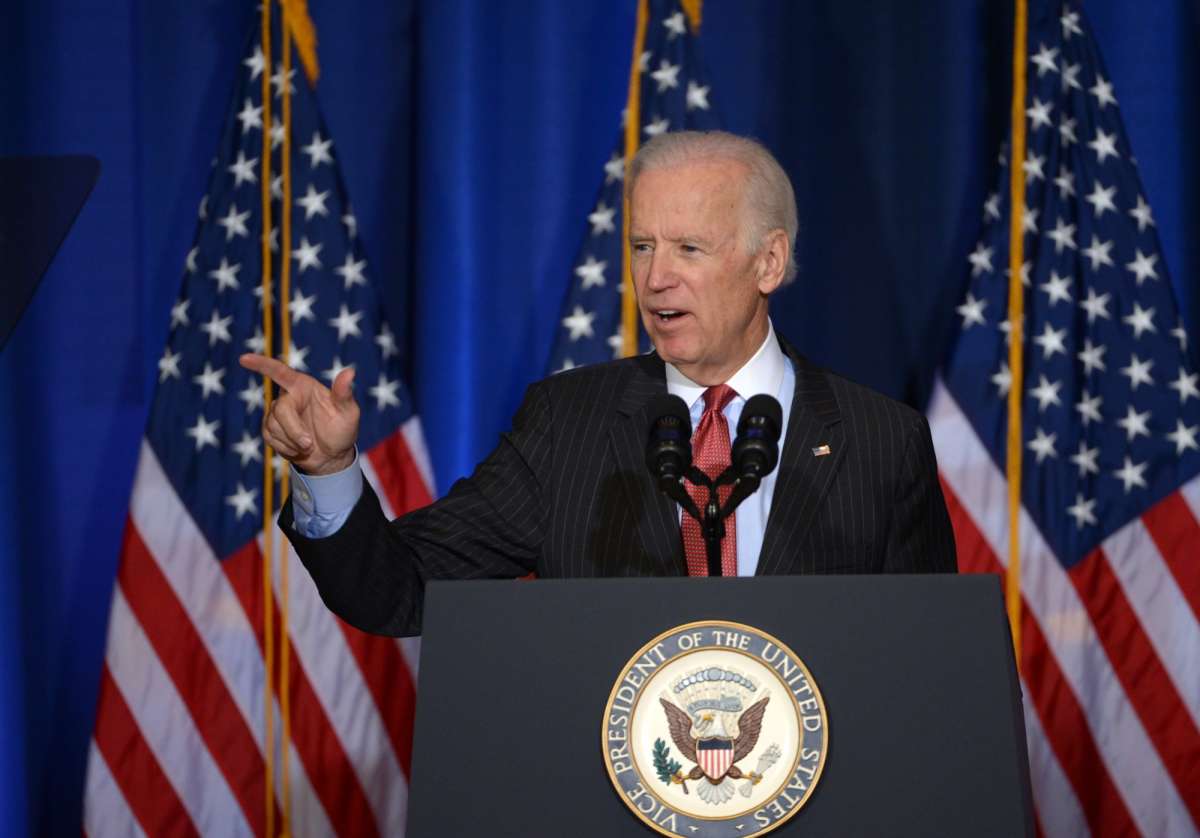Just 37% of Democrats nationwide want the president to seek a second term, according to a poll released last month…reports Asian Lite News
Democrats across New Hampshire are upset with the Democratic president for trying to end the state’s status as home to the first-in-the-nation presidential primary. But their concerns about Biden run much deeper, in line with a majority of Democratic voters nationwide, who question the 80-year-old president’s plans to soon launch his reelection campaign.
Just 37% of Democrats nationwide want the president to seek a second term, according to a poll released last month. That was down from 52% in the weeks before last year’s midterm elections.
Many worry about Biden’s age. Others, like Shurtleff, are upset about the administration’s messy withdrawal from Afghanistan. And the party’s progressive wing has never been enthusiastic about Biden, who is perceived as a moderate, despite his lengthy list of achievements.
The White House cast Biden’s perceived weakness within his own party as an exaggerated narrative that he has repeatedly proven wrong.
“We’re aware pundits’ attitude toward President Biden is unchanged from before he earned the nomination faster than anyone since 2004, won the most votes in American history, built the strongest legislative record in generations and led the best midterm outcome for a new Democratic president in 60 years,” Biden spokesman Andrew Bates said. “Based on comparing the accuracy of our predictions versus theirs, we are happy for this dynamic to continue.”
Still, there’s a risk of a disconnect between rank-and-file Democrats and the party’s establishment. While voters are signaling unease about the prospect of another Biden campaign, Democratic governors, senators and congressional representatives are virtually unanimous in supporting Biden’s reelection.

One exception may be New Hampshire, a small swing state whose electoral votes could be critical in a tight general election. The state has challenged Biden before.
Voters here served Biden an embarrassing fifth-place finish in the 2020 Democratic primary. New Hampshire polls were still open when he decamped to South Carolina, where his presidential ambitions were revived by a decisive win. That state is now Biden’s pick to lead the 2024 presidential primary calendar.
Interviews with angry New Hampshire Democrats across state government and local Democratic committees suggest there is some appetite for a serious primary challenger in 2024. But top-tier prospects don’t seem to be interested.
So far, only Democratic activist and author Marianne Williamson has entered the 2024 primary field. Robert F. Kennedy Jr., the son of the late New York senator and known for railing against vaccines, met with New Hampshire voters on Friday. He’s also leaning toward a bid.
But the likes of Vermont Sen. Bernie Sanders, Biden’s fiercest primary challenger in 2020, has vowed to back the president in 2024. So has Illinois Gov. J.B. Pritzker, whose appearance at last year’s New Hampshire’s Democratic convention still comes up in conversation. California Rep. Ro Khanna, a progressive favorite, has also said he would not challenge Biden, although he has been a vocal advocate for New Hampshire’s place atop the primary calendar.
In an interview, Khanna said it was “political malpractice” for the Democratic National Committee, under Biden’s direction, to threaten New Hampshire’s status.
“New Hampshire is a state where retail politics still matter and where voters have an independence that can’t be controlled by the party establishment in DC,” Khanna said. The primary shakeup “could cost us four electoral votes and hurt our chances to win in the 2024 election.”
Meanwhile, Biden’s allies privately believe the primary dispute will be long forgotten by the time voters cast ballots in November 2024, especially with former President Donald Trump or one of his Republican acolytes on the ballot.
Biden supporters also note that some of the nation’s most popular two-term presidents confronted opposition from within their own parties ahead of their reelection.
President Ronald Reagan faced grumbling from dissatisfied Republicans leading up to the 1984 contest, which turned out to be the most lopsided general election victory in U.S. history. Democrats openly encouraged a primary challenge against President Bill Clinton after the disastrous 1994 midterms. He went on to a commanding reelection win in 1996. And President Barack Obama’s campaign worried about losing support from his political base — especially Black voters — before he cruised to victory in 2012.
“We had a lot of work to do, but the fundamentals were there,” said Stephanie Cutter, who helped managed Obama’s 2012 reelection.
Obama’s outlook changed as his team worked to remind voters what they liked best about him compared to a Republican opponent.

Leave a Reply